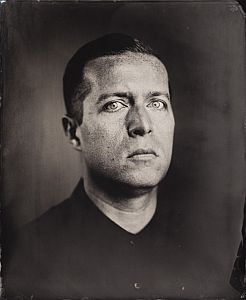 Interview with
Interview with
TJ Cowgill, aka King Dude
King Dude, from Seattle, explores musical styles like folk, blues, rock and metal with a chilling spiritual, sometimes occult approach. He has just released ‘Fear’, a brilliant album in which you're likely to meet the spirits of Johnny Cash, Nick Cave or Douglas Pearce. Reflections Of Darkness caught up with TJ in Brussels, in the midst of his European tour...
Reflections of Darkness [RoD]:TJ, first of all, why did you choose the name "King Dude"?
King Dude [KD]: It really just means nothing. It comes from the lightest level of the stream of consciousness. It's just two words that just work. Meaning is not so important in a name. The name is the least important thing of any entity. The message behind the music is more important than the name.
RoD: And an explicit name would be a limitation for you, since your scope is very broad.
KD: Thank you.
RoD: It covers gospel, traditional American folk, a bit neo-folk,...
KD: Yes and I believe that's the intention behind the project. There's no limitation. I needed a name that wasn't limiting...
RoD: You've just released ‘Fear’ right now. How would you describe the album? Is there a concept, a common thread?
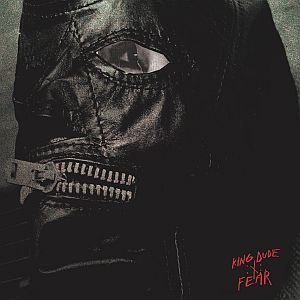 KD: There is a common thread, it's fear. It's about the things that terrify us. And beyond that, it's a ritual. Listen to it from the beginning to the end...
KD: There is a common thread, it's fear. It's about the things that terrify us. And beyond that, it's a ritual. Listen to it from the beginning to the end...
RoD: There's a coherence...
KD: Yes, there's a coherence. It will have people understand something about themselves. My intention from the outset was "I'm going to write about fear" and I had no songs. And then I wrote the songs. And also I didn't want it to be a scary music because that would have been too easy. I wanted a light-hearted music, almost like pop music because that's the scariest music that exists. The Beatles and The Rolling Stones, etc. are really f*cking scary to me...
RoD: Sympathy For The Devil?
KD: Yeah, that sort of thing. But also the overarching mythology that stands behind those bands and the hysteria that existed around them: that's scary, you know. So, I researched a lot of that and tried to work it into the music. There are reasons why I do everything I do on this record. To me, it's nearly perfect.
RoD: Like ‘Lucifer's The Light Of The World’?
KD: That song is perfect. It was written as a response to ‘John the Revelator’ (he sings the song). It's a Christian song, you know. But I wanted to create a gnostic approach as a response. I love the Son House song, it's not to contradict it, it's just to add a different voice to the conversation, that's all. And I used the same format as the Son House song, which is blues and it's a format I use over and over again.
RoD: Was blues the first thing that touched you in music?
KD: No, I would say it was Guns n' Roses, ‘Appetite For Destruction’. Before that, I thought of music as... "superficial". Something you can like but it doesn't touch you. A friend of mine gave me that cassette tape when I was in 4th grade and when I listened to it I really understood something about what they were saying. I knew I was moved by that music at that moment. I suppose that, if anything, that is my mantra, my anchor. It's an odd one, when you look at the music I make. But I owe everything I do to Guns n' Roses. It sounds weird but without Guns n' Roses, I wouldn't want to do the music I do.
RoD: It's close to your black metal side...
KD: It's what led me on the heavy metal path. But I'm not the one who should be doing this 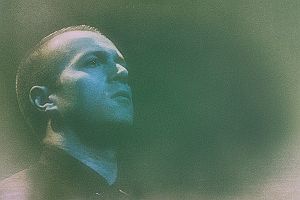 music. There are plenty of bands who do it better than me. It's not where my talent lies. I've always written little songs, folk songs, ever since I was a kid.
music. There are plenty of bands who do it better than me. It's not where my talent lies. I've always written little songs, folk songs, ever since I was a kid.
RoD: And how did you get in touch with folk music, gospel, and all those things?
KD: It's always been there. I went to church when I was young. I hated it, you know.
RoD: Where were you brought up? In Seattle?
KD: In Seattle and outside of Seattle in Eastern Washington. My parents were divorced; I was with my father in rural Washington. We'd go to Christian and Evangelical churches. In those churches, you don't normally find good music. It's very constricted, there is no movement, it was unappealing. My mother was a witch, you know, she is a witch, she practices her own form of magic. She raised me in that as well. Her family was one of the founding families of the Church of Christ, in the 18th century. She's not Christian in the traditional sense. But being raised by both of them gave me a unique perspective on religion. Now everything I do is based on understanding that connection to God. And I believe I find a connection to God through music, as anybody can.
RoD: How did you resolve the duality problem God-Evil, Good-Bad?
KD: I don't believe it's so dualistic in nature.
RoD: It's a construction?
KD: Yeah, it's a construction in culture and human condition. I don't believe in God versus Devil. My God is different, it's not committed to text, there's no Bible for it. It's that moment of inspiration, the spiritual connection to one another. It exists outside of the flesh and the mind. The mortal flesh is flawed, the mortal mind is flawed. I have no connection to those things. It's a dangerous way to live and think. But it's also very empowering at times. It makes you 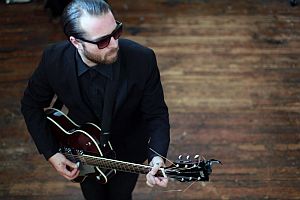 disregard certain things. I'm only concerned with my spiritual health, others are more concerned by their mental or physical health. To come to this realization is dangerous for me because I'm still confined in the flesh and mind and amongst others who are as well. It's a dangerous way to be.
disregard certain things. I'm only concerned with my spiritual health, others are more concerned by their mental or physical health. To come to this realization is dangerous for me because I'm still confined in the flesh and mind and amongst others who are as well. It's a dangerous way to be.
RoD: Is it why you consider concerts as religious ceremonies?
KD: Yes, definitely. They are churches for the people who don't go to church. It's very important to feel that, to sing together, to be alone but together, that's such a beautiful feeling. And it matters so much to us who are outcasts, you know. It doesn't come with a dogma; you can leave at the end and just go home.
RoD: Do you think inspiration comes from elsewhere?
KD: Yeah, definitely. I know it doesn't come from me.
RoD: Have you already tried to analyse what is happening in you when you're composing?
KD: I always feel there is another entity, I'm not sure what it is, I don't intend to name it, but I know it's something some people declare as a collective consciousness. In Buddhism, they call it "tulpa" or thought form. It's this area that exists around us, it's almost tangible, so that you can reach out to that ether and grab an idea with your hand. This is the best way to look at it. Sometimes you think how could these people have such good ideas? Well, they don't possess the idea, they simply possess a pathway to the thought form that exists. The first crucial step for creation is to detach the ego from the idea's. If you attempt to be inspired and also 'great' simultaneously, your ego will conflict with the pathway to inspiration.
RoD: So you have to be humble?
KD: No, it's just that you must acknowledge the source of inspiration as a flow that's all around you. For example, Alan Moore, who is a great comic book writer and a magician, explained in a documentary I saw how steam power was actually invented simultaneously by three different persons in three different parts of the world... at the same time! We know that this is not a coincidence: it's an idea that has been given to certain people. Ideas are gifts, this is the key.
RoD: And when you have an idea, do you know whether it's gonna work or not?
KD: No, you don't know. Being driven to perform a deed based on divinity is much different than being driven to perform a deed based on notoriety or fame. You just have to do it. Everyone does it too. Being capable to acknowledge it is what separates certain people.
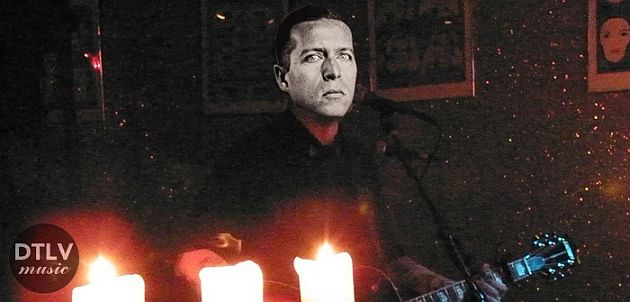
RoD: Many times, artists compose their biggest successes by chance, often because they are in a hurry or because they have to quickly compose something to finish an album... Does it also happen to you?
KD: Everything I do is composed in a kind of chaotic way. It's not planned, not prepared. That's the challenge and sometimes it's very hard. As a person, I sometimes think I don't want to do this anymore but I'm driven to do it for whatever reason. But I never try to predict what people will like or not; you just write what you feel is in that stream. You just reach and be handed something. It's also important to know when is the best time to operate, to create...
RoD: Is it at night for you?
KD: It's very early in the morning. But it is also close to sleep: it is both.
RoD: It's when you are in a sort of daydream situation... between sleeping and being awake...
KD: Yeah, you can't ask me to write a song in the middle of the day. Early in the morning, the song writes itself. It just commits itself and I am just tapping into that. But I do all kinds of things to stay in that stream of consciousness, like isolation, an almost Buddhist type of thing. I find great solace in being alone....
RoD: Thank you very much!
KD: Thank you!
www.facebook.com/kingdudemusic / kingdude.bandcamp.com






Comments powered by CComment